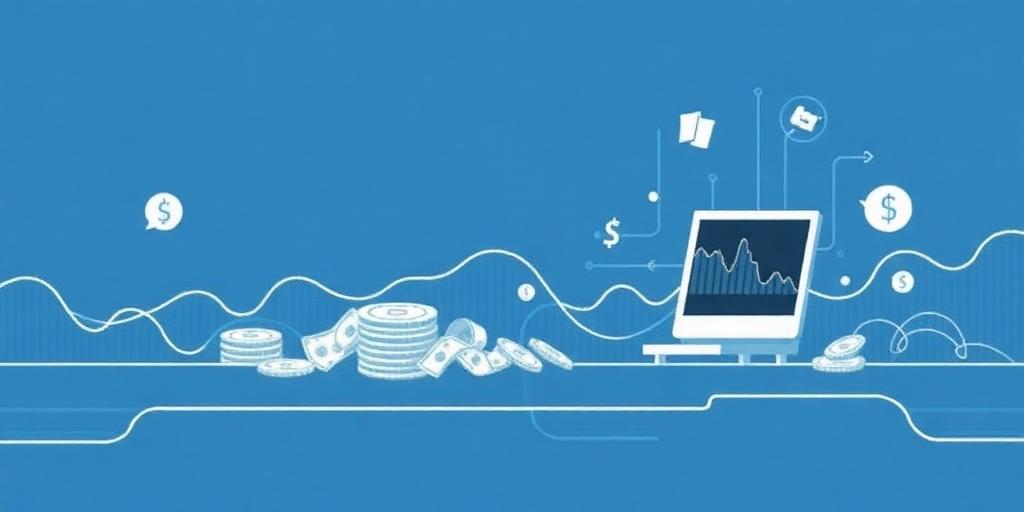Internet shutdowns, once considered a rare occurrence, are becoming increasingly prevalent in our interconnected world. While governments often justify these actions under the guise of maintaining security or quelling unrest, the economic consequences are far-reaching and often underestimated. This post delves into the quantifiable costs of internet shutdowns, exploring their impact on various sectors and highlighting the broader implications for economic stability and growth.
Understanding the Scope of the Problem
Before quantifying the costs, it's crucial to understand what constitutes an internet shutdown. These can range from complete blackouts, where all internet access is blocked, to more targeted disruptions that affect specific platforms or regions. The duration of shutdowns also varies, lasting from a few hours to several days or even weeks. The impact of these shutdowns depends on the scale and duration, but the consequences are generally disruptive and damaging to the economy.
Direct Economic Costs
- Loss of E-commerce Revenue: A significant portion of modern commerce relies on online transactions. When the internet is shut down, e-commerce activities grind to a halt. Businesses that depend on online sales, such as retailers, service providers, and online marketplaces, suffer immediate revenue losses. For example, during a shutdown, consumers cannot purchase goods online, book services, or access online banking, leading to a direct decline in economic activity.
- Disruption of Digital Services: Many businesses rely on digital services for their daily operations, including cloud computing, data storage, and online communication tools. Internet shutdowns disrupt these services, hindering productivity and efficiency. Companies may be unable to access critical data, communicate with clients, or process transactions, leading to operational bottlenecks and financial losses.
- Impact on the Gig Economy: The gig economy, which includes freelancers, contractors, and independent workers who rely on online platforms for work, is particularly vulnerable to internet shutdowns. These individuals often depend on consistent internet access to find work, communicate with clients, and deliver their services. When the internet is shut down, they lose their ability to earn income, leading to financial hardship and instability.
Indirect Economic Costs
- Damage to Investor Confidence: Frequent internet shutdowns can erode investor confidence, making it less attractive for businesses to invest in the affected region. Investors perceive these actions as a sign of instability and unpredictability, which can deter them from committing capital to long-term projects. This can lead to a decline in foreign direct investment and hinder economic growth.
- Impact on Tourism: The tourism industry relies heavily on online bookings, travel information, and digital communication. Internet shutdowns can deter tourists from visiting a region, leading to a decline in tourism revenue. Tourists may be unable to access travel information, book accommodations, or use navigation apps, making it difficult to travel and explore the area.
- Reduced Innovation and Entrepreneurship: A vibrant digital ecosystem is essential for fostering innovation and entrepreneurship. Internet shutdowns stifle this ecosystem by limiting access to information, communication, and collaboration. Entrepreneurs may be unable to research new ideas, connect with mentors, or access funding opportunities, hindering their ability to launch and grow their businesses.
Quantifying the Costs
Several organizations have attempted to quantify the economic costs of internet shutdowns. The Brookings Institution, for example, estimated that internet shutdowns cost countries billions of dollars in GDP each year. These estimates take into account the direct and indirect costs discussed above, including lost e-commerce revenue, reduced productivity, and decreased investor confidence.
The Way Forward
Internet shutdowns are not a sustainable solution to security or political challenges. Instead, governments should focus on promoting open and secure internet access, protecting freedom of expression, and fostering a vibrant digital economy. By embracing these principles, countries can unlock the full potential of the internet and promote long-term economic growth and prosperity.
In conclusion, the economic fallout from internet shutdowns is substantial and multifaceted. Quantifying these costs is essential for raising awareness and advocating for policies that promote open and secure internet access. Governments must recognize that internet shutdowns are not only a violation of human rights but also a significant impediment to economic development.









